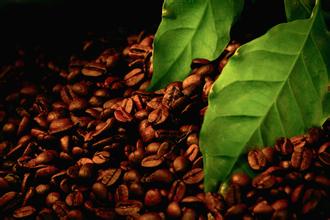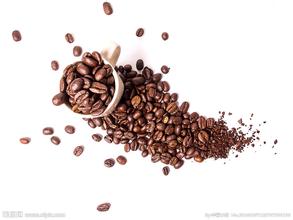The advantages and disadvantages of coffee drinking Italian coffee powder more fine
The advantages and disadvantages of coffee:
1. Coffee contains certain nutrients. Nicotinic acid in coffee contains vitamin B, which is higher in roasted coffee beans. And there are free fatty acids, caffeine, tannic acid and so on.
two。 Coffee is good for the skin. Coffee can promote metabolic function, activate digestive organs, and has a great effect on constipation. Taking a bath with coffee powder is a kind of thermotherapy, which has the effect of losing weight. Drinking a cup of coffee after a meal is also good for digestion.
3. Coffee has the function of relieving alcohol. Drinking coffee after drinking alcohol will quickly oxidize the acetaldehyde converted from alcohol, decompose it into water and carbon dioxide and discharge it out of the body.
4. Coffee can relieve fatigue. In order to eliminate fatigue, we must supplement nutrition, rest and sleep, and promote metabolic functions, and coffee has these functions.
5. Three cups of coffee a day can prevent gallstones. For caffeinated coffee, it stimulates gallbladder contraction and reduces cholesterol, which is prone to gallstones. The latest Harvard University researchers found that men who drank two to three cups of coffee a day were less than 40% likely to get gallstones.
6. Drinking coffee regularly can prevent radiation damage. Radiation damage, especially the radiation of electrical appliances, has become a prominent pollution at present. Indian Barba atomic researchers have come to this conclusion in mouse experiments and say it can be applied to humans.
7. The health care and medical function of coffee. Coffee has the functions of anti-oxidation and heart protection, strengthening muscles and bones, benefiting waist and knees, appetizer, eliminating fat and accumulation, promoting orifice and dehumidification, promoting blood circulation and removing blood stasis, relieving wind and relieving spasm and so on.
8. The influence of coffee on mood. Experiments show that the average person absorbs 300 milligrams of caffeine (about 3 cups of brewed coffee) a day, which has a good effect on a person's alertness and mood.
The following six types of people are not suitable for drinking coffee:
Suffering from high blood pressure, coronary heart disease, arteriosclerosis and other diseases-long-term or heavy consumption of coffee can cause cardiovascular disease.
Older women-Coffee reduces calcium and causes osteoporosis. After menopause, women need to add ten times the amount of calcium every day.
People with stomach problems-drinking too much coffee can worsen stomach problems.
Pregnant women-drinking too much coffee can lead to fetal malformation or miscarriage.
People with vitamin B1 deficiency-vitamin B1 can maintain the balance and stability of the nervous system, and coffee has a destructive effect on it.
Cancer patients-drinking too much coffee is at risk of cancer to normal people.
Because coffee stimulates the brain so strongly that it directly affects the mental state, when coffee first spread to Europe in the 16th century, some people advocated that a doctor's prescription was needed to drink coffee. Over the past four or five centuries, the vigorous development of coffee culture has made it impossible for people to be without coffee for a day, but the medical community has gradually proposed that the impact of coffee on the human body is not only refreshing.

Important Notice :
前街咖啡 FrontStreet Coffee has moved to new addredd:
FrontStreet Coffee Address: 315,Donghua East Road,GuangZhou
Tel:020 38364473
- Prev

Coffee beans the geography of all kinds of coffee is the flavor.
All the story atmosphere is in place, and now the price can be marked like wine. A large 16-ounce latte has 440 calories, about the same as two bags of MM chocolates, and costs about $4.50 in New York City, about three times as much as McDonald's most expensive premium coffee. When consumers are enjoying these high-priced coffee while wondering about the origin of this drink.
- Next

The history of coffee beans how to make strong coffee
Overseas Chinese in Indonesia drank coffee every day in the 1960s, and Taiwanese began to drink coffee in the 1970s. It has a history of about 40 years now. Whether Hong Kong introduced coffee earlier needs research, while the mainland began to rise in the late 1990s. At present, many cafes have sprung up, young people have gradually accepted coffee drinks and coffee drinking places are also diversified, including restaurants.
Related
- Guji coffee producing area of Guji, Ethiopia: Humbela, Shakiso, Wulaga
- What is the most expensive variety of Qiloso in BOP multi-variety group?
- How to store the coffee beans bought home?
- Why are Yemeni coffee beans so rare now?
- Ethiopian Sidamo all Red Fruit Sun Sun Santa Vini Coffee beans
- SOE is mostly sour? What does it mean? Is it a single bean? what's the difference between it and Italian blending?
- Is Italian coffee beans suitable for making hand-brewed coffee?
- How to choose coffee beans when making cold coffee? What kind of coffee beans are suitable for making cold coffee?
- Just entered the pit to make coffee, what kind of coffee beans should be chosen?
- Can only Japan buy real Blue Mountain Coffee? What are authentic Jamaican Blue Mountain coffee beans?

